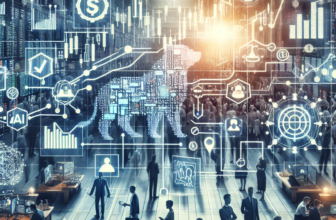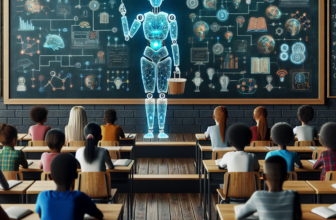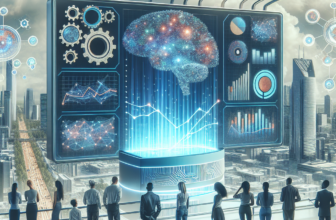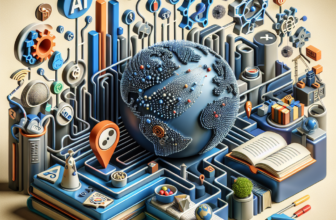The Impact of AI on Video Creation: Improving Creativity and Productivity
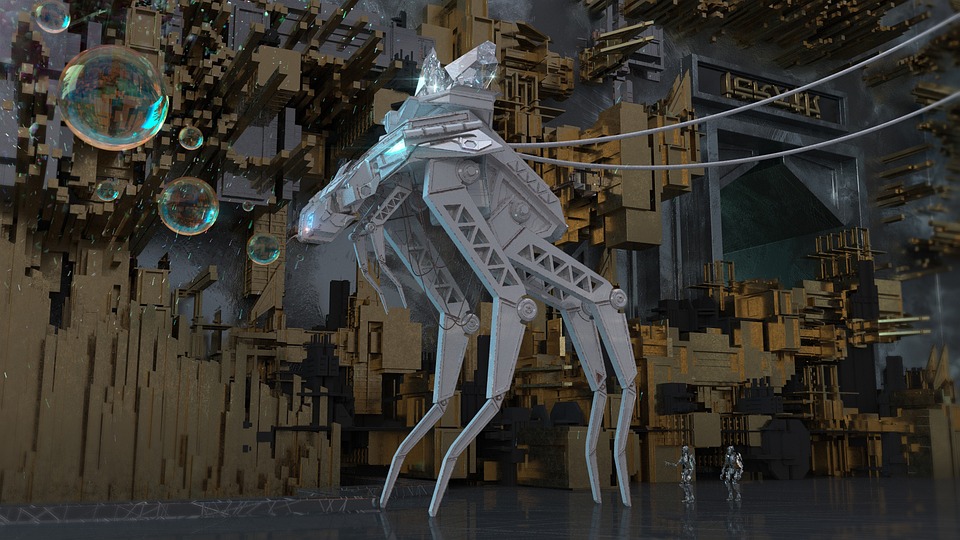
In recent years, the use of AI (artificial intelligence) in video creation has become more prevalent. As a result, the impact of AI on video creation has been substantial, leading to improvements in creativity and productivity. Video creation has always been a labor-intensive process, requiring significant amounts of time and resources. However, with the introduction of AI, video creators have been able to streamline their processes and produce higher-quality content at a faster pace. This article will explore the ways in which AI has influenced video creation, and how it has improved both creativity and productivity in the industry.
One of the most significant impacts of AI on video creation is the automation of certain tasks. Traditionally, video editing and production required human intervention at nearly every step of the process. However, AI has enabled video creators to automate many of these repetitive tasks, such as video editing, color correction, and audio adjustments. This has freed up valuable time for creators to focus on the more creative aspects of their work, rather than getting bogged down in the technical details.
Furthermore, AI has also significantly improved the quality of video content. Through the use of machine learning algorithms, AI is able to analyze vast amounts of data and identify patterns and trends in order to optimize video content. This means that video creators can produce content that is more engaging and visually appealing, leading to a better overall viewing experience for their audience. Additionally, AI has also enabled video creators to personalize their content to a greater extent, by using data-driven insights to tailor their videos to the preferences of their audience.
In addition to the improvements in creativity and content quality, AI has also had a substantial impact on the productivity of video creators. By automating many of the time-consuming tasks involved in video production, AI has enabled creators to produce more content in a shorter amount of time. This has been particularly beneficial for businesses and organizations that rely on video content as part of their marketing and communication strategies. With the help of AI, these entities have been able to create more content, more quickly, and more efficiently than ever before.
However, it is important to note that while AI has certainly improved many aspects of video creation, it is not without its challenges. One of the main concerns surrounding the use of AI in video creation is the potential for job displacement. As AI continues to take on more tasks that were previously performed by humans, there is a valid concern that many video production jobs may become obsolete. However, many experts argue that while AI may automate certain tasks, it also creates new opportunities for creative work that is uniquely human. Ultimately, the impact of AI on video creation will likely result in a shift in the skills and roles required in the industry, rather than a complete replacement of human workers.
The impact of AI on video creation has been significant, and it is likely to continue to shape the industry in the years to come. As AI technology continues to advance, video creators will have access to even more powerful tools that will enable them to produce high-quality content more efficiently than ever before. While there are certainly challenges and concerns associated with the use of AI in video creation, its overall impact has been largely positive, leading to improvements in both creativity and productivity.
FAQs about AI for Video Creation:
1. What is AI for video creation?
AI for video creation refers to the use of artificial intelligence technology to automate and optimize various aspects of the video production process. This includes tasks such as video editing, color correction, and audio adjustments, as well as the use of machine learning algorithms to personalize and optimize video content.
2. How does AI improve creativity in video creation?
AI improves creativity in video creation by automating time-consuming tasks, such as video editing, and by providing data-driven insights that can be used to personalize and optimize video content. This frees up valuable time for creators to focus on the more creative aspects of their work, leading to higher-quality content.
3. What impact does AI have on the productivity of video creators?
AI has had a substantial impact on the productivity of video creators by automating many of the time-consuming tasks involved in video production. This has enabled creators to produce more content in a shorter amount of time, leading to improved efficiency and productivity.
4. What are some of the challenges associated with the use of AI in video creation?
One of the main challenges associated with the use of AI in video creation is the potential for job displacement, as AI continues to take on tasks that were previously performed by humans. However, many experts argue that while AI may automate certain tasks, it also creates new opportunities for creative work that is uniquely human.
5. What does the future hold for AI in video creation?
The future of AI in video creation is likely to be characterized by continued advancements in technology, leading to even more powerful tools that will enable creators to produce high-quality content more efficiently than ever before. While there are certainly challenges and concerns associated with the use of AI in video creation, its overall impact has been largely positive, leading to improvements in both creativity and productivity.



